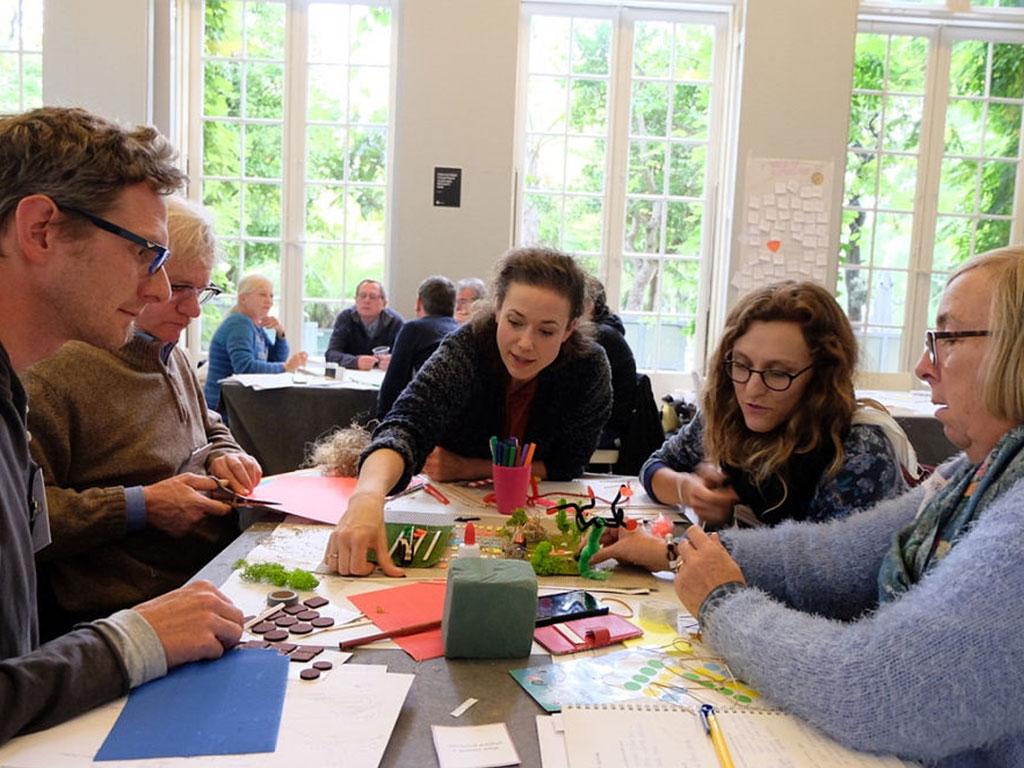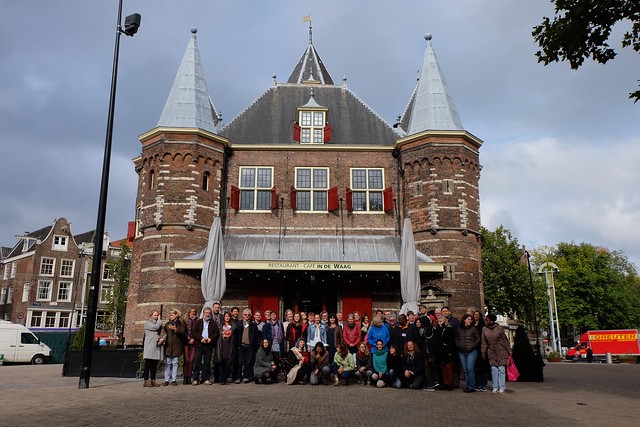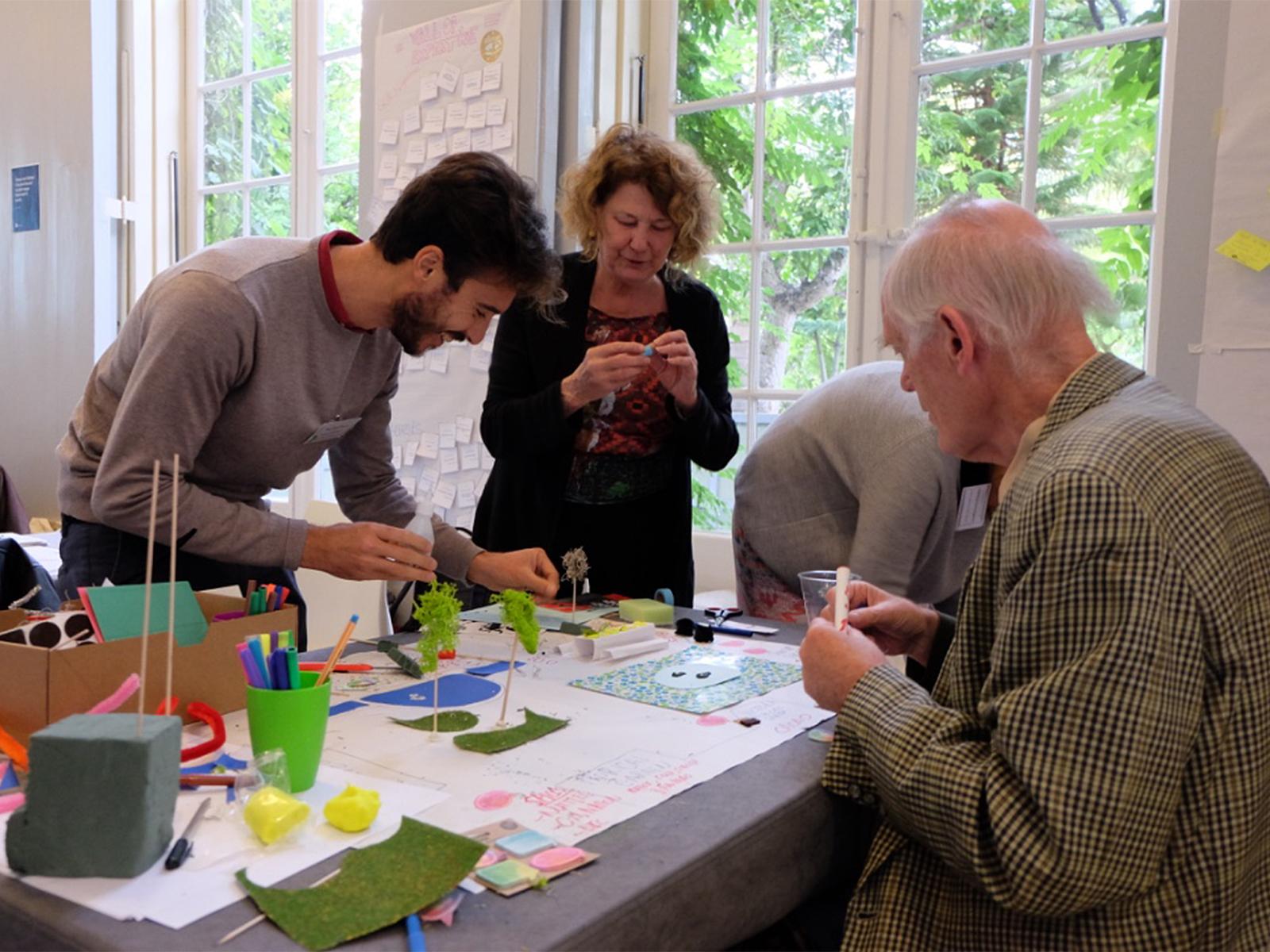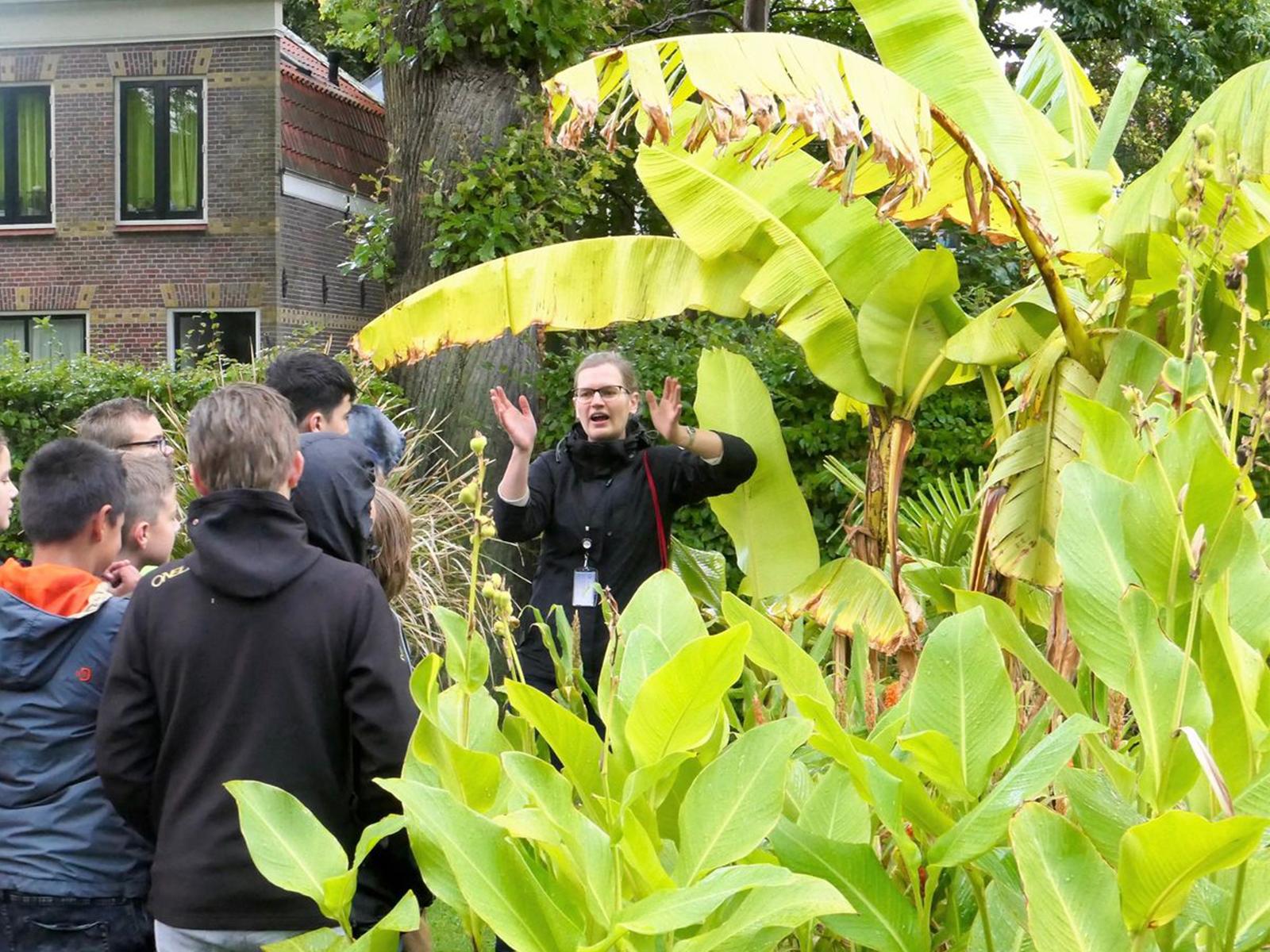The botanical gardens involved in the BigPicnic project started their co-creation journey this week. During the three day training 'Start a movement’ employees of the gardens were introduced to co-creation methods and tools and began forming a learning community. In BigPicnic eighteen European partners, including 15 botanical gardens from Europe and Uganda, come together to bring “food security” to the attention of their local citizens.
Waag is involved as expert partner in the field of co-creation. During an intense program the participants were encouraged to think of new and inclusive ways to connect with their environment and audiences. Throughout the different exercises a range of co-creation strategies were explored. The program took partly place at the Hortus Botanicus in Leiden where the group got the chance to practice their co-creation skills with members of Hortus Leiden’s (potential) community.
For some photos of the event, have a look a this Flickr album:
The group is brought together around the topic of food security which resulted in a lot of food for thought: what is the role of botanical gardens in for example the discussion of biodiversity, the ethics of the food market, food waste and the growing world population? In the sessions, participants explored this, not only by talking and listening, but especially by making and crafting as this is when creative ideas arise.
The botanical gardens will continue their co-creation journey as a learning community. Waag is looking forward to coaching the first group of gardens: Royal Botanic Garden Edinburgh, CSIC Madrid, HGOD Kroussia (Greece) and Hortus Botanicus Leiden. They will share their knowledge with the next group, and so forth. As of May 2017, all the gardens will organize science cafés and outreach exhibitions on food security, co-created with their communities.



